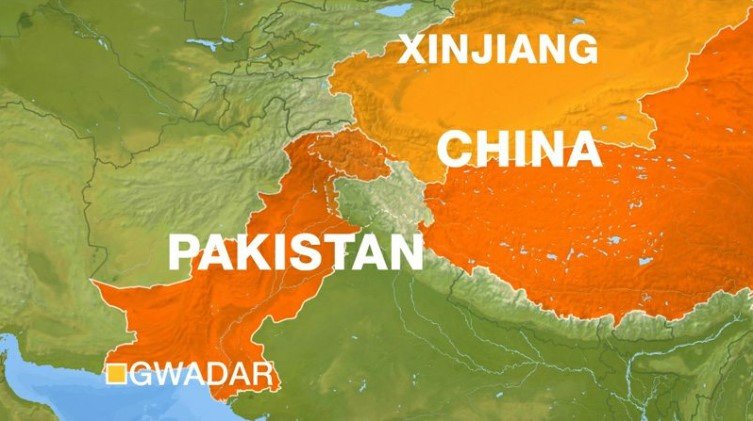Through a strategic deal with China, Pakistan has taken a bold step towards solidifying its status as a regional hub for digital connectivity. Dr. Umar Saif, the acting federal minister in charge of IT and telecommunications, revealed four major accomplishments made in association with important business leaders that have thrust Pakistan into a new era of digital infrastructure.
PIE, or Pakistan Internet Exchange Driven by DE-CIX: A Hub for Regional Connectivity

The most notable aspect of this deal is the launch of the nation’s first carrier-neutral Internet Exchange (IX), called “Pakistan Internet Exchange (PIE) powered by DE-CIX,” which is situated in Islamabad. Through this partnership, Pakistan will be positioned as a hub for regional connectivity, opening up significant opportunities to generate income from internet transit traffic. An international IX provider, DE-CIX, contributes its experience to improve Pakistan’s digital connection environment.
Regional Connectivity Hub and Transformational Agreement with China
The agreement with China, which permits Pakistan to route internet traffic via the nation, is a significant accomplishment. Dr. Umar Saif highlighted the revolutionary effect, seeing Pakistan as a center of regional interconnectedness. With a user base that exceeds that of Italy and a sizable digital market, the goal of this collaboration is to provide low-latency connectivity and localize international content inside Pakistan.
Pakistan Carrier-Neutral Internet Exchange Point and Data Center Powered by Etisalat

Pakistan’s first carrier-neutral Internet Exchange Point (IXP) and data center will be established by Etisalat and PTCL. This data center, run by PTCL and DE-CIX, would make it easier to provide super-scaling cloud services like AWS, Google Cloud, and Azure in Pakistan. It will also function as a local hub for content from well-known websites like Netflix, YouTube, and TikTok.
Pakistan Karachi’s PTCL Data Center: Promoting the Growth of the Digital Economy
It is expected that the Pakistan Internet Exchange, run by DE-CIX and located in the PTCL data center in Karachi, will have a major impact on the nation’s digital economy. With an estimated $200–400 million in potential annual revenue from transit traffic, this effort seeks to improve user internet experiences and hasten the development of Pakistan’s digital economy.
Pakistani Imagining the Digital Age
Along with other important industrial players, this strategic partnership between China and Pakistan catapults the country into a prominent position in the regional and international digital environment. Modern infrastructure, carrier-neutral exchanges, and revolutionary data centers have been established in Pakistan, marking a significant turning point in the country’s digital development and innovation. These programs have the potential to influence Pakistan’s digital landscape going forward as the country positions itself as a hub for digital connection.

China constructs the “Digital Silk Road” to divert Pakistani internet traffic from India
China is going to build the last segment of a cross-border fiber optic cable in Pakistan as part of the larger Chinese Belt and Road Initiative (BRI), which will serve the geostrategic interests of both nations by creating the Digital Silk Road.
The fiber cable will provide service to BRI member nations as well as Europe by connecting to the Pakistan East Africa Connecting Europe (PEACE) underwater cable in the Arabian Sea.
The PEACE cable will significantly cut down on the amount of time needed to send internet data between participating nations by offering the quickest direct internet path.
According to the report, work is now underway to lay a cable connecting Rawalpindi to the port towns of Gwadar and Karachi. “The $240-million project, which is in partnership with China’s Huawei Technologies, was approved by the government last week,” said the statement.
Following the government’s clearance this month to build an Arabian Sea landing station in Karachi, the construction of sea cable within the nation’s territorial seas is scheduled to commence in March.
The cable’s Mediterranean segment, which connects Egypt and France, is currently under construction. It stated that the 15,000-kilometer cable is anticipated to enter service later this year.
This is perceived by observers as a calculated attempt to get around multinational telecommunications consortiums that are dominated by businesses from the West and India.
According to the report, the coronavirus epidemic and debt issues in partner nations have had a detrimental impact on certain BRI projects, including a $6.8 billion railway project in Pakistan. Beijing’s response has included accelerating digital initiatives and the construction of communications infrastructure.
The China-Pakistan Economic Corridor (CPEC) Authority has been working hard to strengthen Gwadar’s connectivity with significant road and rail upgrades, and this has been acknowledged in the report.
Pakistan is likewise searching for a different way to access the internet via China. The majority of China’s internet traffic currently travels via terrestrial cables that pass-through Mongolia, Russia, and Kazakhstan on its way to Europe.
Four of the seven underwater cables that now feed Pakistan originate in India, according to Telegeography, a Washington-based market research firm for telecommunications. These cable networks are the result of partnerships between telecom companies in Pakistan, Egypt, and India.
Through the provision of a second internet connection path, the PEACE cable is anticipated to mitigate Pakistan’s vulnerability to internet disruptions resulting from damaged underwater cables.

One Belt One Road: Chinese Power Meets the World author Eyck Freymann told Nikkei that the initiative is changing to prioritize high-tech collaboration and digital services above traditional heavy infrastructure.
According to him, Beijing aspires to control the physical infrastructure that underpins international communications, especially the internet. It will be in a better position to pursue future tech-related agreements with partner nations and to internationalize its tech sector as a result.
President Xi Jinping of China unveiled the massive multi-trillion-dollar Belt and Road Initiative (BRI), often known as the new Silk Road, in 2013, with the goal of increasing connectivity and collaboration between East Asia, Europe, and East Africa. Expert estimates indicate that it will greatly increase global trade and reduce trading expenses for participating countries by half.

